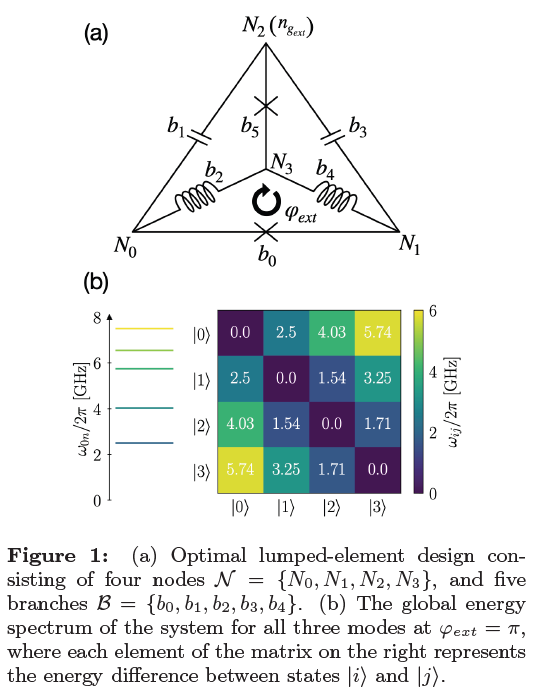Robust multi-mode superconducting qubit designed with evolutionary algorithms
2024-08-02 13:22
2576 浏览Multi-mode superconducting circuits offer a promising platform for engineering robust systems for quantum computation. Previous studies have shown that single-mode devices cannot simultaneously exhibit resilience against multiple decoherence sources due to conflicting protection requirements. In contrast, multi-mode systems offer increased flexibility and have proven capable of overcoming these fundamental limitations. Nevertheless, exploring multi-mode architectures is computationally demanding due to the exponential scaling of the Hilbert space dimension. Here, we present a multi-mode device designed using evolutionary optimization techniques, which have been shown to be effective for this computational task. The proposed device was optimized to feature an anharmonicity of a third of the qubit frequency and reduced energy dispersion caused by charge and magnetic flux fluctuations. It exhibits improvements over the fundamental errors limiting Transmon and Fluxonium coherence and manipulation, aiming for a balance between low depolarization error and fast manipulation; furthermore demonstrating robustness against fabrication errors, a major limitation in many proposed multi-mode devices. Overall, by striking a balance between coupling matrix elements and noise protection, we propose a device that paves the way towards finding proper characteristics for the construction of superconducting quantum processors.

arxiv.org/abs/2407.18895
